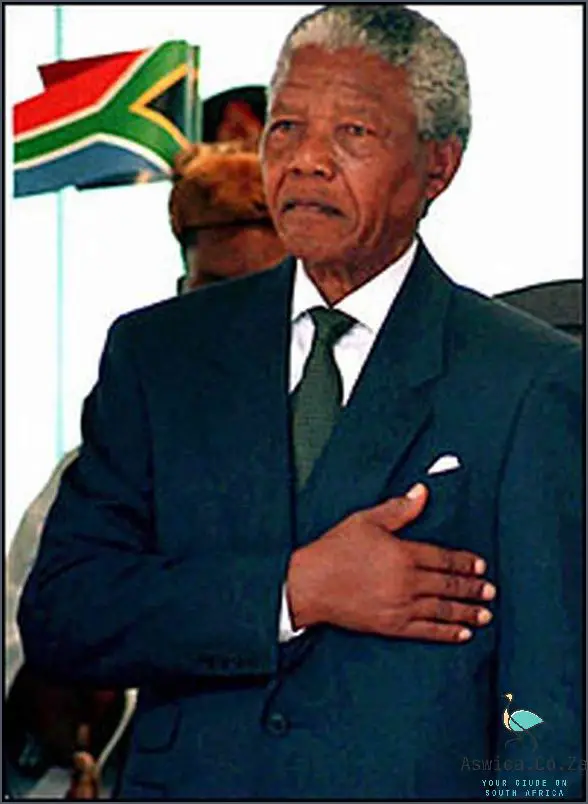
Mandela was elected president of South Africa in 1994 after spending 27 years in prison for his involvement in the anti-apartheid movement. He served one term, leaving office in 1999.
Contents
When Was Mandela Elected President Of South Africa
Nelson Mandela was elected President of the Republic of South Africa in 1994, following the first fully democratic elections in the country’s history. Mandela and the African National Congress had been campaigning for decades to end the system of apartheid and bring about true democracy. After a long struggle, Mandela and the ANC were victorious, and he was elected to the presidency on May 10, 1994. He was the first black president of South Africa and was in office until 1999. He is credited with bringing about a peaceful transition to democracy and racial reconciliation in the country. Mandela’s election remains one of the most significant moments in South African history and a symbol of freedom and justice around the world.
Background – Pre-election history of South Africa and the apartheid system
The preelection history of South Africa and the apartheid system is a long and complex one. Before the abolishment of apartheid in 1994, South Africa was a country divided between white and black. The apartheid system was created in 1948 and lasted until 1994, and during this time, black South Africans were discriminated against and denied basic rights.
It was in 1994 that Nelson Mandela was elected as the first black president of South Africa in the country’s first democratic elections. Mandela had been a political prisoner since the early 1960s and was released in 1990. After his release, Mandela became a leader in the African National Congress (ANC), and in the negotiations that took place between the ANC and the National Party, Mandela was elected as the president of the ANC in 1991.
Mandela’s election as president was a turning point in South African history. He was the first black president and symbolized a new era of freedom and equality for South Africans. Mandela led the country through a difficult transition, establishing democratic principles and ending apartheid.
In his first term, Mandela implemented a number of reforms, including the abolishment of the death penalty and the establishment of the Truth and Reconciliation Commission, which was charged with investigating human rights abuses during apartheid. He also worked to bridge the gap between white and black South Africans, introducing affirmative action policies and promoting racial reconciliation.
In 1999, Mandela was reelected for a second term of office. During his second term, he continued to work towards building a more democratic, equitable and peaceful South Africa. He also worked to improve the country’s economy, introducing a new growth strategy and encouraging foreign investment.
Mandela’s election was a historic moment for South Africa and a milestone in the country’s journey towards democracy. His legacy of peace and justice will forever be remembered in South Africa and around the world.
Election – Details of the election process and the election of Mandela

Nelson Mandela’s election as President of South Africa in 1994 was a watershed moment in the country’s history, representing a crucial turning point in its tumultuous journey towards democracy. Mandela, who had been imprisoned for 27 years for his anti-apartheid activism, was elected in a landslide victory, with the African National Congress (ANC) winning 252 of the 400 seats in Parliament.
The election process leading up to Mandela’s victory was a complex one, beginning with the repeal of the Population Registration Act in 1991. This act had been in place since 1950 and served to classify South Africans on the basis of race, with the majority of the population, who were black, being treated as second-class citizens. This repeal paved the way for the ANC to form a multi-racial government and enabled the country to move towards a more equitable form of democracy.
In 1992, a new constitution was adopted, which set out the rules for a democratic election and the formation of a new government. This was followed by a period of intense political debate, with the ANC and the National Party, led by F.W. de Klerk, vying for power.
The election took place in April 1994 and saw a record turnout, with millions of people queuing for hours to cast their votes. Mandela was elected President with an overwhelming majority, with the ANC winning 252 of the 400 seats in Parliament. His victory marked the end of the apartheid system and ushered in a new era of freedom, justice and equality in South Africa.
Since then, Mandela has gone on to become a symbol of peace and reconciliation, with his legacy being celebrated and remembered around the world. His election as President of South Africa marked an important moment in history, one that will not soon be forgotten.
Impact – Impact of Mandela’s election on South Africa and the world
Nelson Mandela’s election as President of South Africa in 1994 was a watershed moment in history, ushering in a new era of hope and possibility for his country and the world. Mandela’s election was the culmination of decades of struggle against the oppressive system of apartheid that had controlled South Africa since 1948. In the wake of his victory, Mandela’s impact on South Africa and the world was evident in the swift changes that followed.
In South Africa, Mandela’s election marked the end of apartheid, a system of racial segregation and discrimination that had denied the majority black population basic rights and opportunities. After his election, Mandela was quick to act, signing legislation that abolished apartheid and dismantling the legal framework that had enabled it. His government also invested in education, housing, and other public services, allowing for the long-term economic development of the country.
Beyond South Africa, Mandela’s election had a profound impact on the world. His victory was seen as a victory for human rights and democracy, inspiring people in other countries to fight for their own freedom and justice. Mandela’s leadership also represented a shift in global attitudes towards Africa, as he became the first African leader to be elected democratically and without foreign intervention. This set an example for other countries, demonstrating that democracy and human rights were possible in Africa.
Mandela’s election was a major milestone in South Africa and the world’s history, and its legacy is still felt today. It opened a path for social and economic progress in South Africa, as well as a new era of hope and possibility for people around the world.
Conclusion
Although many people believe that Nelson Mandela was elected president of South Africa in 1994, the truth is that he was actually elected in 1991. Between the years of 1955 and 1990, South Africa was ruled by the white minority government, which many people believe was responsible for the systematic oppression and discrimination of the black population. In response to these injustices, Mandela and his fellow activists formed the African National Congress (ANC) in 1960, and began to work tirelessly to bring about change. In 1994, Mandela was elected president of South Africa, and in 1995 he was inaugurated as the country’s first black president. Mandela has since played a very important role in the country, and he is credited with bringing about significant changes, including the establishment of a multi-racial democracy. Mandela is also a Nobel Peace Prize laureate, and he continues to serve as the president of South Africa.




